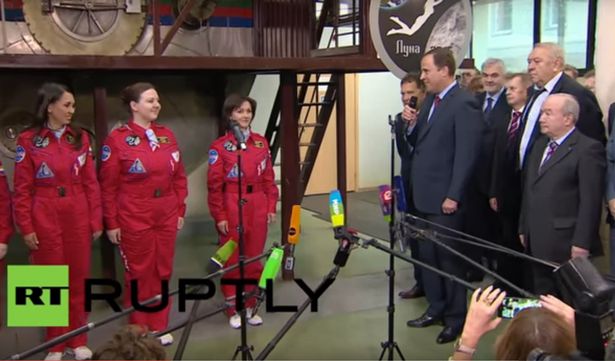For eight days, the female volunteers will live inside a wood-panelled suite of rooms at Moscow's Institute of Biomedical Problems, renowned for its wacky research into the psychological and physical effects of space travel. And can they cope without makeup? Volunteers for the project include psychologists, doctors, and scientific researchers; over the eight days, the crew will carry out ten experiments focusing on psychology and biology.
"It will be particularly interesting in terms of psychology", said the institute's director Igor Ushakov.
"It's interesting for us to see what is special about the way a female crew communicates". "I'd like to wish you a lack of conflicts, even though they say that in one kitchen, two housewives find it hard to live together".
According to a Wednesday story in the Verge, the Russian Federal Space Agency has announced plans to send cosmonauts to the lunar surface by 2029, 60 years after Neil Armstrong made that first giant leap on the Sea of Tranquility. Since then, Russian Federation has fallen somewhat behind other countries in gender equality; it's sent only four female cosmonauts into space in the last five decades, compared to the US National Aeronautics and Space Administration's 49 women in space.
It was criticised at the time for failing to select any women for the research - this latest experiment is created to redress the balance.
There's never been an all-female crew on the ISS. Volunteer Darya Komissarova told whatever sub-human life form dared to ask that, "We are very lovely without makeup", to which her crew-mate Anna Kussmaul added, "We are doing work". "We trust ladies may not just be no more regrettable than men at performing certain undertakings in space, in any case better".
Russian Federation and the European Space Agency are arranging a joint examination mission to the moon utilizing an unmanned rocket as a part of 2020, to perform various tests to decide how suitable the moon may be for human home.
They plan to spend their 90 minutes of free time each day reading, watching films and playing board games, Phys.org reported.
"I'm sure we all have the education, personal qualities and the upbringing, at the end of the day", she said.
The European Space Agency (ESA) recently said it could help the Moon landing expedition by providing technical expertise, RT said.

Open all references in tabs: [1 - 5]